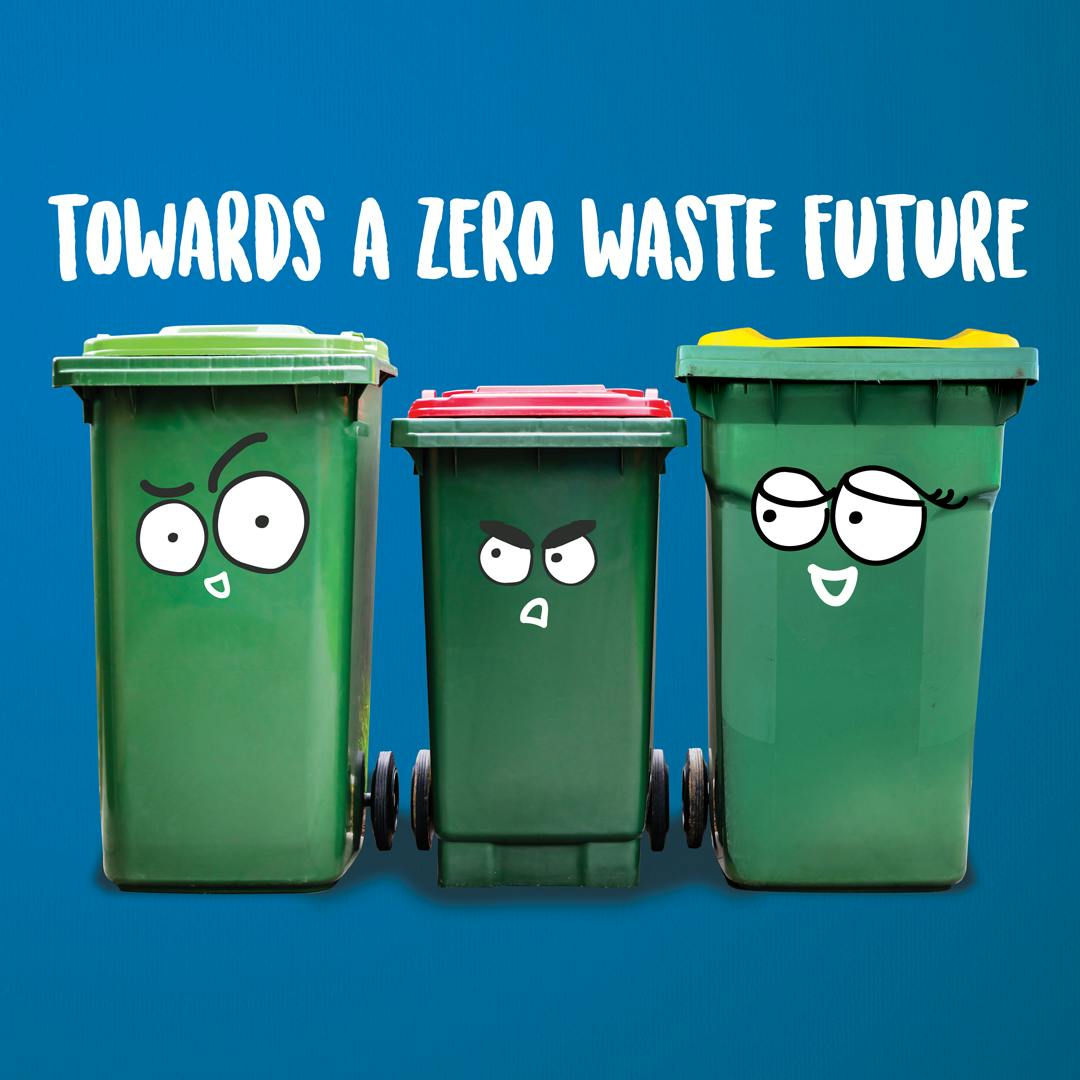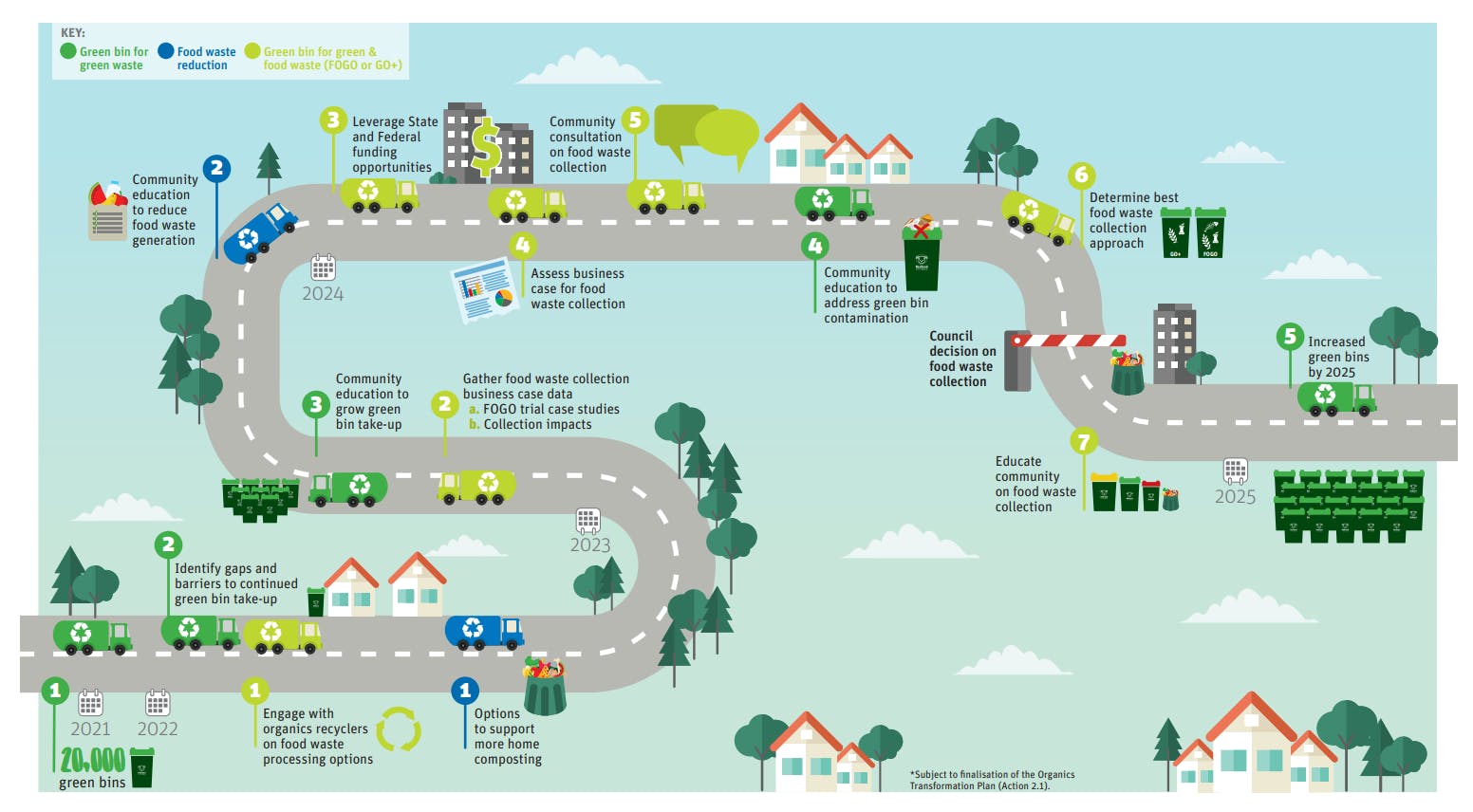Waste Reduction and Recycling Plan 2021-2030
Consultation has concluded

Council is reinforcing the importance of separating waste and recyclable materials generated by residents and understanding options to keep food and green waste out of landfill.
Council’s Waste Reduction and Recycling Plan 2021-2030 (the Plan) outlines a clear path forward on how the Redlands Coast community will move towards becoming a zero-waste society by 2050. Sustainable waste management principles underpin the Plan to protect and enhance our naturally wonderful environment and the lifestyle we enjoy.
In finalising the Plan, Council has considered the valuable feedback received during community consultation and responded to changes in a dynamic and evolving waste industry. Changes at Regional, State and Federal government levels have included:
- Council becoming a signatory to the Council of Mayors South East Queensland Waste Plan
- Reviewing Queensland Waste Levy changes from the State Government to understand what this means for our local households and waste management costs
- Publication of the Queensland Organics Strategy and Action Plan (2022-2032)
- Assessing other industry impacts at Federal and State Government levels, such as the National Plastics Plan and product stewardship programs such as Battery Recycling.
All of these changes, along with the feedback from community consultation, have allowed Council to develop a robust long-term Waste Reduction and Recycling Plan.
The Plan demonstrates Council’s committed to the 2030 waste reduction and recycling targets set by the Queensland Government, which aim to reduce the amount of waste generated by residents by 15% and increase the amount of materials recycled to 60% by the end of the decade.
There are four key components outlined in the Waste Reduction and Recycling Plan 2021-2030 to achieve those targets:
- Reduce recyclables, green waste and food waste lost through the red (general waste) bin
- Halve recycling contamination in the yellow bin
- Increase the number of households with a green waste bin
- Produce an organics transformation plan, building on a roadmap for growing green bins and investigating options and affordability of food waste reduction from landfill.
These themes allow Council, over the next 10 years, to focus on the largest volumes of waste, align with regional plans whilst pacing its actions and budget to suit meeting targets and to evaluate current performance.
For further details, see the SnapShot Summary, FAQ's or the Waste Reduction and Recycling Plan 2021-2030.

